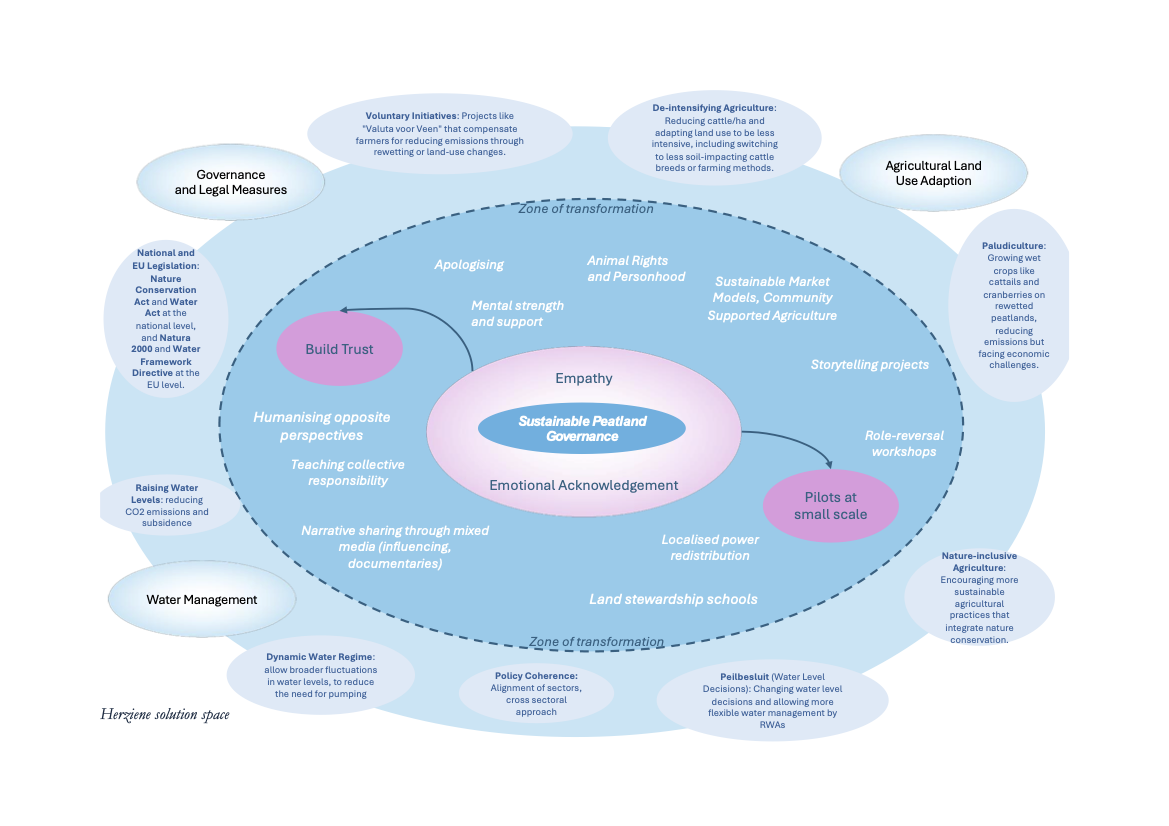News & Events
For Peat’s Sake: The Power of Imagination in Expanding the Solution Space for Sustainable Peatland Governance
LOSS researchers Toms Wils and Dries Hegger supervised an MSc thesis by Julie Wellens.
Peat meadow areas in the Netherlands are experiencing significant degradation due to intensive agricultural practices, leading to land subsidence, greenhouse gas emissions, and loss of biodiversity. Traditional governance and policy frameworks have prioritized economic interests over ecological needs, often implementing technical solutions that address symptoms rather than root causes. This reflects a broader “crisis of imagination,” where stakeholders struggle to envision and embrace alternative, sustainable futures. There is an urgent need for transformative approaches that can fundamentally change land use practices and achieve sustainable peatland management. This study explores how imaginative approaches can help stakeholders envision and adopt new strategies for adapting to and mitigating degradation in peat meadow areas. Utilizing the concept of imaginative logics as conceptualized by Pelzer and Versteeg (2019), the research engaged stakeholders in the Middelburg-Tempel polder—a polder facing pressing challenges of significant land subsidence and peat degradation—through semi-structured interviews incorporating imaginative exercises. The methodology included a literature review to establish the current state of peatland governance, expert consultations to refine the framework for potential solutions, and a case study involving local farmers, residents, and other stakeholders. Imaginative logics were operationalized into concrete interview prompts, and dialogic interviewing techniques—such as counterfactual prompting and reflective questioning—were employed to engage participants in creative and reflective discussions. By aligning the interviews with different imaginative logics, the study aimed to stimulate participants’ imagination and encourage consideration of transformative land-use practices. The findings indicate that imaginative approaches can broaden the range of possible solutions by facilitating self-reflection, challenging entrenched perspectives, uncovering underlying barriers, and promoting collaborative dialogue.

However, deep-seated polarisation, emotional resistance, and immediate practical concerns among stakeholders hinder the effectiveness of these approaches. The study identified four key elements identified through imaginative approaches to help expand the solution space for peatland management:
1. Building trust and addressing emotional barriers: establishing a foundation of trust and acknowledging stakeholders’ feelings are crucial for open dialogue.
2. Reorienting economic viability towards sustainability: restructuring economic models to prioritize sustainability alleviates pressures that lead to unsustainable practices.
3. Enhancing governance through stakeholder engagement: involving local stakeholders in policymaking ensures that policies are practical and context specific.
4. Valuing local knowledge and strengthening community cohesion: integrating local insights and fostering strong community ties enhance the capacity for sustainable land management.
The study concludes that while imaginative approaches can significantly contribute to sustainable peatland management by unlocking the collective imagination necessary for transformative action, their success depends on first addressing foundational barriers such as polarisation and trust deficits. The findings provide a viable pathway toward sustainable management of peat meadow areas and show that emotional and social dimensions should be addressed on the same playing field as technical solutions.

